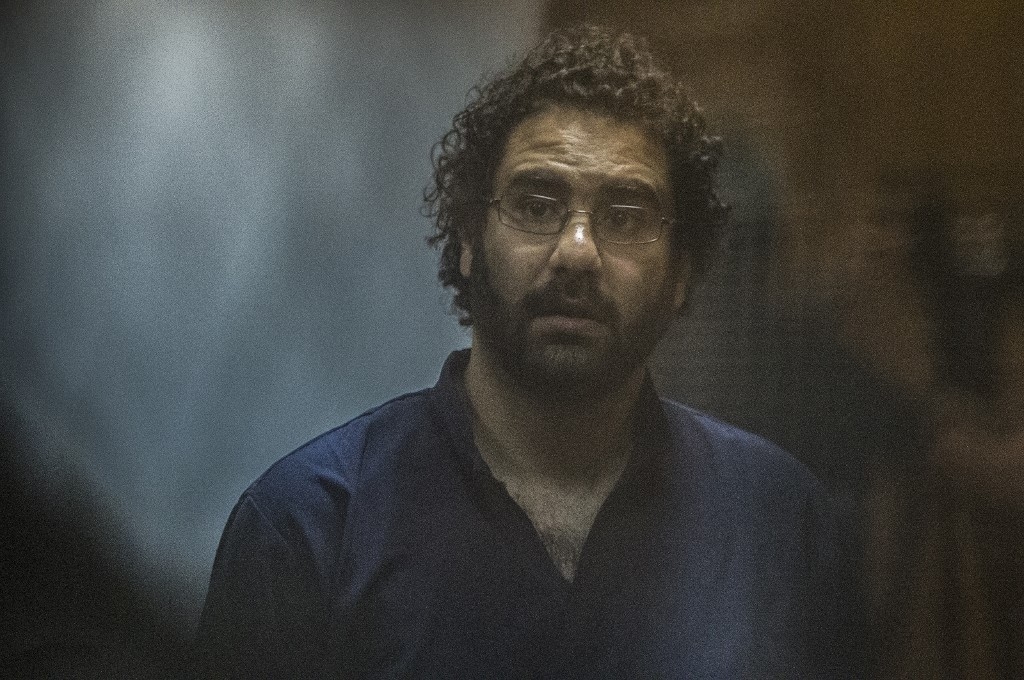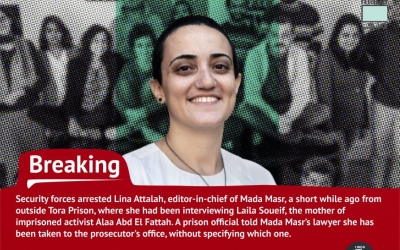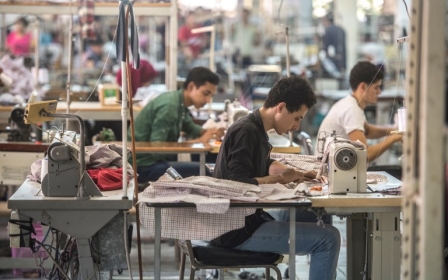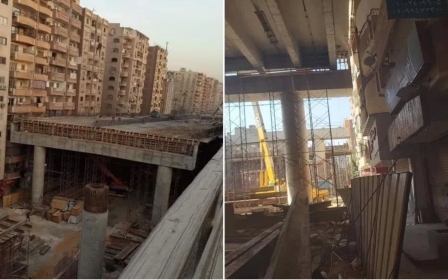Jailed Egyptian activist Alaa Abdel Fattah ends hunger strike

Egyptian political prisoner Alaa Abdel Fattah has decided to call off a hunger strike he started last month in protest against restrictions imposed on prisoners since the outbreak of the coronavirus pandemic.
According to Abdel Fattah’s sister Mona Seif, he wrote in a letter to his mother on Monday that he would end the hunger strike to reassure his family ahead of the Eid holidays marking the end of Ramadan, and after learning that his provisional detention renewal is now being reviewed in court.
“He decided to end the strike … now that the matter is in the hands of judges and lawyers who would take the legal steps they see fit,” Seif said on Twitter.
“He also said he took the decision especially because he does not want us to spend Eid worrying about him,” she added.
Abdel Fattah launched the hunger strike on 12 April in response to the continued ban on family visits as part of government measures to control the spread of coronavirus.
New MEE newsletter: Jerusalem Dispatch
Sign up to get the latest insights and analysis on Israel-Palestine, alongside Turkey Unpacked and other MEE newsletters
His decision to end the hunger strike came hours after the release of the editor of Mada Masr news website Lina Attalah, who was briefly arrested after interviewing Abdel Fattah’s mother outside Tora prison on Sunday.
The publication said she was being held by police overnight to face questioning by prosecutors on Monday, then later tweeted that the prosecution ordered her release on a bail of 2,000 Egyptian pounds ($127).
Images of Abdel Fattah’s mother Laila Soueif lying down outside Tora prison while waiting to deliver medicine to her son have shed new light on the plight of families of political prisoners who have been banned from visits since early March.
Abdel Fattah was one of the leading voices during the 2011 uprising that led to the ousting of then-president Hosni Mubarak. He was jailed on charges of protesting without permission in 2013 and had been granted conditional release in March last year.
The terms of his parole meant that he must spend every night in a cell in his local police station, where he was arrested again in September.
Abdel Fattah’s mother and aunt were briefly detained on 18 March after holding a small protest calling for the release of prisoners.
Rights groups and advocates have repeatedly called on the Egyptian government to free political prisoners to prevent an outbreak of coronavirus in the country’s overpacked prisons.
Middle East Eye delivers independent and unrivalled coverage and analysis of the Middle East, North Africa and beyond. To learn more about republishing this content and the associated fees, please fill out this form. More about MEE can be found here.





